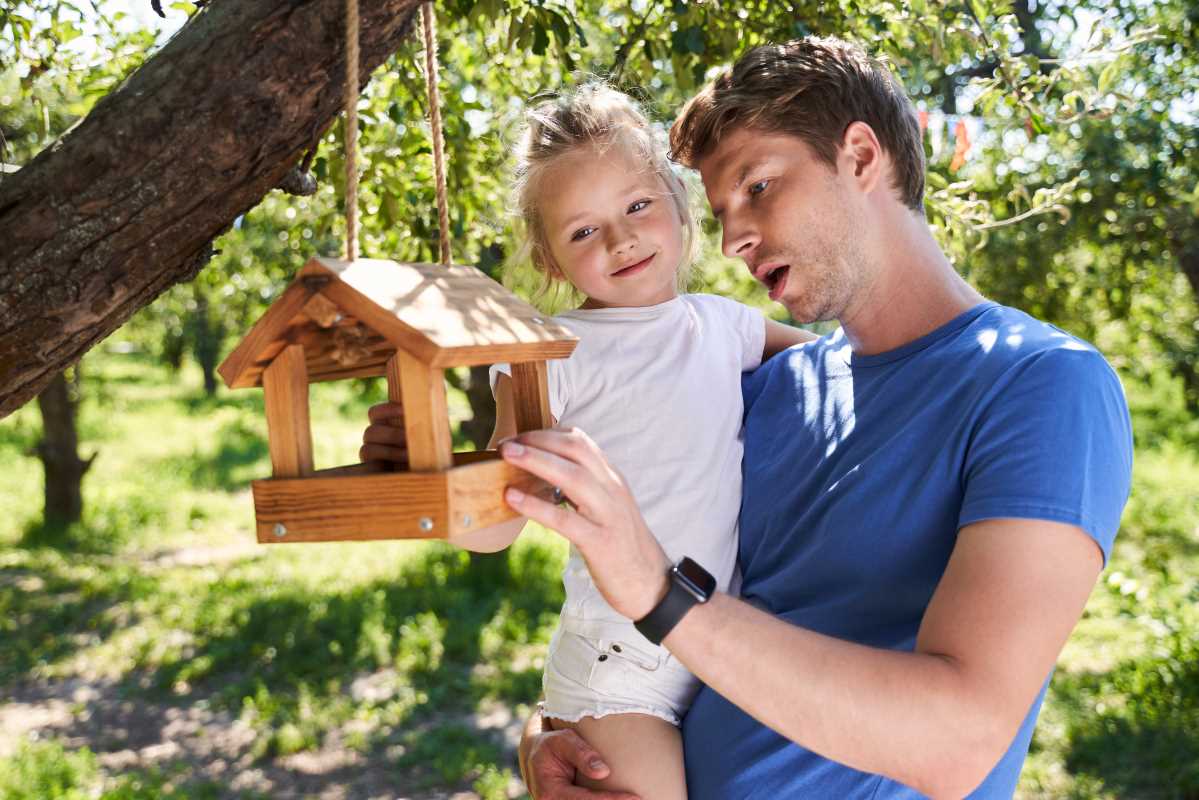Single parenting is often described as a marathon without a finish line. Each day can feel like you’re carrying the weight of your world and your children’s on your shoulders. Amid the busy schedules, emotional demands, and constant juggle of home, work, and parenting, it’s easy for self-care to slip down the priority list. Yet, for single parents, nurturing your own well-being isn’t a luxury; it’s a necessity—not just for you but also for your children.
This guide explores how single parents can master self-care habits that fit realistically into everyday life. Whether you’re newly single or have been going solo for years, these strategies are designed to help you thrive—not merely survive.
Redefining Self-Care for Single Parents
Forget Instagram-perfect spa days or daily meditation at dawn. For single parents, self-care is about practical, sustainable routines tailored to replenish energy, restore balance, and nurture the mind and body. It’s about small, consistent efforts, not extravagant gestures. It means identifying what you need, carving out moments for yourself, and letting go of guilt when prioritizing your well-being.
Self-care looks different for everyone. For some, it might be enjoying a peaceful cup of coffee before the kids wake up or savoring a 10-minute walk in the sunshine. For others, it could mean setting firm boundaries, seeking emotional or practical support, or simply saying “no” more often to external demands.
The Importance of Role Modeling
One of the most powerful reasons to invest in self-care is that it teaches your kids valuable lessons about well-being. When children see their parents taking time to relax, eat well, and enjoy life, they learn to prioritize their own needs in healthy ways. This helps them grow into resilient adults who understand that self-care is an act of strength, not selfishness.
By taking care of yourself, you’re not just improving your life; you’re creating a blueprint of balance and self-respect for your kids to follow.
Habit 1 - Setting Realistic Boundaries
Establishing boundaries is the foundation of sustainable self-care. It’s about protecting your time, energy, and mental space while ensuring you can show up for your children without constantly running on empty.
Learn to Say No
The demands on single parents can feel never-ending. From school commitments to social obligations, it’s easy to overcommit and exhaust yourself. Practice saying no without feeling the need to overexplaining or apologizing. For example, if a neighbor asks for a favor while your schedule is already packed, a simple, “I can’t help this time, but I’ll check back with you when I can,” is enough. Remember, refusing unnecessary tasks helps you save energy for what truly matters.
Designate “Off-Limits” Time
Imagine your day as a pie chart. If all your time is given away to others, there’s no slice left for you. Create small but meaningful windows in your routine, like 20 minutes before bedtime or a short break during nap times, and declare these moments off-limits. Use this time to decompress, journal, or simply sit quietly. Teaching your children to respect this “me-time” by explaining how it benefits everyone can help reinforce this habit.
Habit 2 - Building a Support Network
No single parent should have to tackle everything alone. However, asking for help can be challenging, especially if you don’t want to impose or admit that you need assistance. Yet, building a strong support network is one of the most empowering acts of self-care.
Reach Out to Family and Friends
Don’t hesitate to lean on your loved ones. Be specific when asking for help. Instead of saying, "I need a break," say, "Could you watch the kids for two hours this Saturday while I run errands?" Many people are happy to help but need guidance on how to do so.
Create a Single Parent Circle
Seek out local support groups or online forums for single parents. These communities not only provide a safe space to vent and share advice but also remind you that you’re never alone in your challenges. Whether it’s swapping childcare tips or just finding someone who understands, these connections can be transformational.
For instance, local parenting groups might organize babysitting exchanges, giving you a chance to recharge while also helping others.
Habit 3 - Prioritizing Sleep and Rest
Sleep might feel like an unattainable luxury, but quality rest is indispensable. Sleep improves mood, focus, and even immune health, helping you tackle daily parenting challenges with greater resilience.
Protect Your Sleep Routine
Create a bedtime ritual not just for your children but for yourself as well. This could mean dimming the lights, drinking herbal tea, or listening to calming music for 15 minutes before sleep. If your evenings are chaotic, even small adjustments, like preparing tomorrow’s essentials an hour earlier, can help.
Rest Without Guilt
It’s tempting to use quiet moments to tackle chores or work. However, pushing through exhaustion leads to burnout. Reframe rest as an investment in your ability to show up. Whether it’s taking a nap, reading a book, or just lying down, these moments recharge your energy and reduce stress.
Habit 4 - Mindful Moments in Daily Life
Mindfulness doesn’t require long meditation sessions. It’s about being fully present and intentional in your everyday moments.
Savor Small Pleasures
Look for joy in life’s simple treasures. Enjoy the softness of a blanket, laugh with your kids over a funny story, or relish the feeling of sunshine on your face while walking to the park. Turning small pleasures into moments of gratitude can transform daily stress into something much more manageable.
Try Micro-Meditation
If full meditation sessions feel impossible, try micro-meditations. For example, as you wash dishes, focus on the sensation of water on your skin. Or, take three deep breaths each time you get into the car. These short, intentional pauses can help center your mind, even on the busiest days.
Habit 5 - Move Your Body in Ways You Enjoy
Staying physically active isn’t just about staying fit. It’s a crucial tool for stress relief, emotional balance, and sustained energy, even if you’re pressed for time.
Build Activity into Your Day
Look for opportunities to move without adding extra tasks. For example, park farther from the grocery store to squeeze in extra steps or join your kids in an impromptu game of tag at the park. These bursts of movement count toward your fitness and often bring smiles to everyone involved.
Don’t Aim for Perfection
You don’t need to follow a rigid workout plan. Even a two-minute stretch while waiting for your coffee or a brisk walk with your kids is a win. Celebrate these small victories rather than criticizing yourself for what you didn’t do.
Habit 6 - Nourishing Your Body
The food you eat fuels your ability to show up for your family, yet meal preparation can feel daunting, especially when time is tight.
Plan Simple Meals
Embrace simplicity in the kitchen. A stir-fry loaded with frozen veggies, pre-cooked proteins, and quick sauces is fast and nutritious. Batch-cooking a few staples like pasta or rice can save time on busy evenings. Also, involving your kids isn’t just practical; it’s a great way to bond while teaching them valuable life skills.
Hydrate Throughout the Day
Busy days often lead to neglecting hydration. Keep a water bottle with you as a reminder, or set alarms to sip regularly. Even something this small can boost energy levels and improve your focus.
Habit 7 - Nurture Your Mind
Being a parent often shifts focus away from personal passions and goals, but feeding your mind is an essential form of self-care.
Feed Your Passions
Rekindle hobbies or interests you’ve set aside, whether it’s writing, painting, gardening, or learning something new. Even committing 10 minutes a day to an activity you love can reignite your sense of individual identity outside of parenthood.
Seek Professional Help When Needed
There’s no shame in seeking help when life feels overwhelming. Therapists or support groups tailored to single parents can provide resources and strategies to help tackle challenges head-on.
Habit 8 - Practicing Self-Compassion
Parenting is a marathon, not a sprint, and guilt can be a constant companion. But self-compassion is key to resilience.
Speak Kindly to Yourself
When self-doubt sneaks in, replace criticisms with affirmations. Remind yourself that you’re doing your best with the resources you have. Over time, this habit strengthens your emotional resilience.
Forgive Mistakes Quickly
Mistakes are a natural part of parenting. Whether it’s losing your temper or forgetting a school event, move on with grace. Every misstep is an opportunity to grow and learn.
Creating a Self-Care Plan That Works for You
- Assess Needs: Pinpoint what areas of life feel most draining.
- Start Small: Focus on one or two habits before expanding.
- Seek Support: Find an accountability partner for encouragement.
- Adapt as Needed: Your routine will shift; adjust accordingly.
Overcoming Key Barriers
- Time: Stack self-care habits onto existing routines like school drop-offs.
- Guilt: View self-care as enhancing—not detracting from—parenting.
- Finances: Utilize free self-care ideas like nature walks, creative play, or public events.
Making Self-Care a Legacy
Building habits of care today lays the foundation for a healthier, happier future—not just for you but for your children. When they see you prioritize your well-being, they’ll understand that self-love is a strength, not a sacrifice. Even small, imperfect efforts pave the way for profound transformation.
Today’s Reminder:
You deserve rest. You deserve joy. And you deserve to thrive—not just as a parent but as a person.
 (Image via
(Image via





